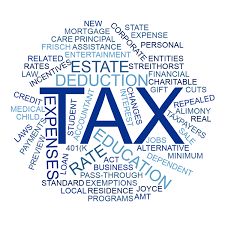Offshore Tax Evasion Lawyers – A Guide

Introduction
Offshore tax evasion has become an increasing area of focus for the IRS and Department of Justice in recent years. More Americans with hidden offshore accounts and unreported income are finding themselves in the crosshairs of federal prosecutors. If you have undeclared foreign accounts or assets, you may require experienced legal representation to mitigate penalties and criminal prosecution. Offshore tax evasion lawyers can provide vital guidance and defense throughout this complex process.
Understanding Offshore Tax Evasion
The IRS defines offshore tax evasion as the willful attempt by taxpayers to hide income and assets using foreign accounts or entities to illegally reduce their tax obligations (1). Common examples include:
- Maintaining an unreported foreign bank or investment account
- Routing personal funds through an offshore shell corporation
- Failing to disclose foreign business interests or ownership
- Grossly underreporting income on a tax return
Some of the most popular tax havens used to facilitate evasion are Switzerland, Cayman Islands, Bermuda, and Panama. However, the IRS has increased pressure on banks and governments worldwide to share more account information in recent years.
Civil and Criminal Tax Penalties
If caught evading offshore taxes, individuals may face a range of civil fines and criminal prosecutions (2):
Civil Offshore Penalties
- Failure to file FBAR penalty: $10,000 per violation
- Accuracy-related penalty: 20% of underpaid tax
- Failure to file information returns: $10,000 per violation
- Failure to report foreign trusts: 35% of trust assets
Criminal Offshore Penalties
- Tax evasion: $100,000 + 5 years prison
- Filing a fraudulent return: $100,000 + 3 years prison
- Willful failure to file FBAR: $250,000 + 5 years prison
The extent of penalties largely depends on whether the IRS deems your violations were willful or non-willful. If deemed willful, you may incur much harsher fines and potential prison time. This makes choosing an experienced offshore tax attorney critical from the outset.
Also Read:
https://besraha-news.online/medical-malpractice-attorneys/
When to Hire an Offshore Tax Evasion Lawyer
If you have unreported foreign assets or income, it is advisable to proactively hire an offshore tax evasion lawyer before the IRS contacts you (3). Some warning signs that may warrant retaining counsel include:
- Receiving a notice from the IRS or Department of Justice regarding foreign interests
- Learning you had a signatory authority on an undisclosed overseas account
- Discovering FBAR filing requirements you may have missed
- Realizing you failed to report offshore investment income
- Owning a foreign business interest not reflected on past returns
Retaining legal counsel early in the process can help you get into IRS compliance programs before audits or criminal proceedings commence. Your lawyer can also negotiate reduced penalties and protect your rights.
How Offshore Tax Evasion Lawyers Can Help
Experienced offshore tax evasion attorneys have a strong grasp of IRS disclosure programs, foreign reporting requirements, and complex international tax code (4). They can provide a number of services to clients with exposure to undeclared overseas accounts or assets, including:
Guiding Voluntary Disclosures: They will advise if a Streamlined Disclosure Program or Offshore Voluntary Disclosure Program submission makes sense based on your situation. These programs can lead to greatly reduced penalties but must meet strict IRS requirements.
Preparing Required Filings: If you have failed to file accurate FBARS, Form 8938, or other international information returns, your lawyer can handle preparation and submission.
Negotiating Reduced Penalties: Based on factors like inherited accounts or reliance on advisor advice, attorneys may successfully argue for penalty abatement or mitigation.
Avoiding Criminal Prosecution: In extremely egregious tax evasion cases involving large sums, proactive legal defense is vital to avoid criminal conspiracy charges.
Navigating Audit/Investigation: If already contacted for exam or investigation, lawyers defend your rights during the proceeding, arguing to minimize penalties.
Appealing Adverse Rulings: With their experience litigating tax cases, attorneys can appeal unfavorable IRS rulings or excessive offshore penalties.
Professional and ethical offshore tax evasion lawyers serve client interests while complying fully with all IRS disclosure requirements. They act as trusted advocates and guides through offshore tax resolution processes.
Questions to Ask When Hiring an Attorney
If you have unreported foreign accounts or assets that require legal counsel, here are some key questions to ask prospective offshore tax evasion lawyers during an initial consultation (5):
- How many years have you specifically focused on offshore tax cases?
- What is your track record with penalty reduction through voluntary disclosures?
- Can you provide redacted cases of favorable client outcomes?
- Which IRS disclosure programs do you advise clients enter? When?
- If audited or criminally investigated, what are my defense options?
- How can you argue for penalty abatement in my circumstances?
- What are all the associated costs for your full scope of legal services?
Additionally, reach out to your state bar association and consult online reviews to verify attorney credentials and ethics. Reputable offshore tax evasion lawyers should have a proven expertise in this highly specialized field.
Conclusion
Getting legal counsel from qualified offshore tax evasion attorneys is crucial if you have undeclared foreign accounts or income. Whether pursuing reduced penalties through voluntary disclosure or defending a criminal investigation, offshore tax lawyers have the skills and experience to mitigate penalties and protect your rights. Thoroughly vet any prospective counsel on their specific offshore tax qualifications before moving forward. Timely representation can help facilitate the best possible resolution with the IRS.
References
- IRS Frequently Asked Questions on International Taxpayers and Evasion
- IRS Offshore Voluntary Disclosure Program FAQs
- American Bar Association Guide to Offshore Tax Evasion
- Forbes Guide to Tax Attorneys for Offshore Accounts Disclosure
- Journal of Accountancy Article on Vetting Tax Attorneys
Offshore tax evasion is a serious matter with major financial and legal consequences. If you have foreign asset reporting requirements or past non-compliance issues, consult qualified legal counsel to safeguard your rights. Experienced offshore tax evasion lawyers serve as trusted advocates through each step of IRS disclosure and penalty mitigation processes.







